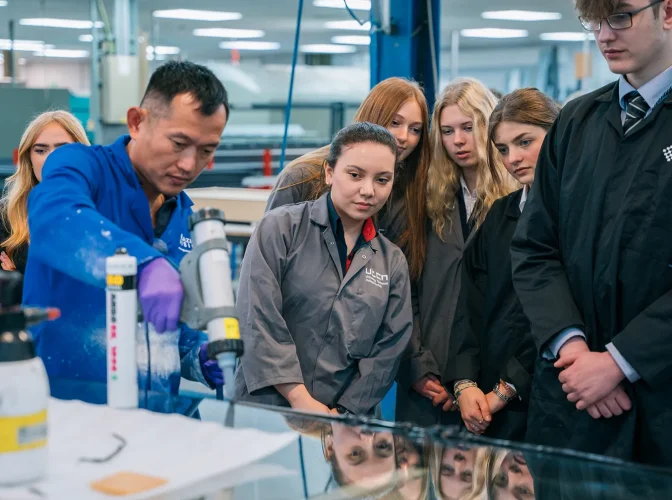
What are T-levels?
Introduced in 2020, T-levels are the gold standard technical education programme for 16–19-year-olds. The qualifications are underpinned by occupational standards developed with employers and maintained by Skills England. Students and employers can be confident that the qualifications prepare them well for progression – either into skilled employment, further training such as an apprenticeship, or higher education.
These programmes are a transformative addition to the post-16 education landscape, offering rigorous, high-quality technical qualifications that combine classroom learning with substantial industry experience.

Supporting T-level delivery
Gatsby’s support for T-levels reflects our commitment to ensuring their success – not only by helping teachers embed rich curriculum content, but also by enabling effective industry placements and promoting strong progression routes into meaningful destinations. By working closely with providers, employers and policymakers, we aim to ensure that T-levels are the gold standard in technical education.
T-levels support in action
Our work supports teachers through communities of practice that are an opportunity for them to share experience and gather insights from employers, sector bodies and awarding organisations to enhance curriculum delivery. Each community also contributes to the development of high-quality teaching materials that align with the T-level curriculum. In this way our Technical Education Networks (TEN)programme supports teachers to deliver an engaging and enriched curriculum for their students. Alongside this, the TEN programme commissions research and hosts events to support technical education, pedagogy and sharing of practice.
A key component of every T-level is the industry placement, which gives students real-world experience in a relevant workplace. Gatsby supports this element by working with employers, providers and industry bodies to identify best practice, remove barriers and ensure placements are high-quality, purposeful and accessible.
Understanding where T-level students go after completing their courses is vital to evaluating the success and impact of the qualification. Gatsby supports research and data collection to build a clearer picture of student outcomes – from employment and apprenticeships to further study – helping to inform ongoing policy and practice.
To support the successful rollout of T-levels, Gatsby has supported initiatives to raise awareness among key audiences, including parents. We also created a practical communications toolkit for providers – equipping them to promote T-levels effectively to parents.


